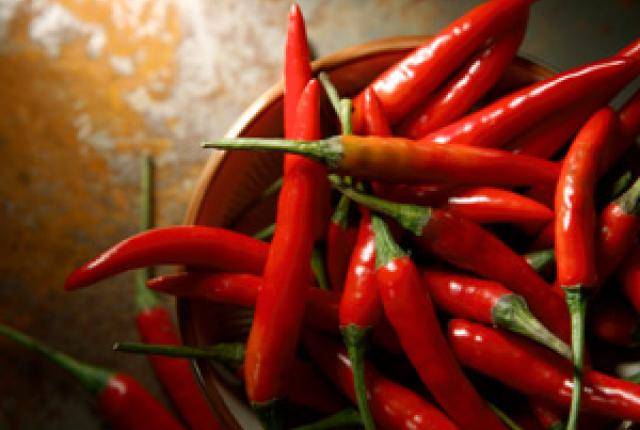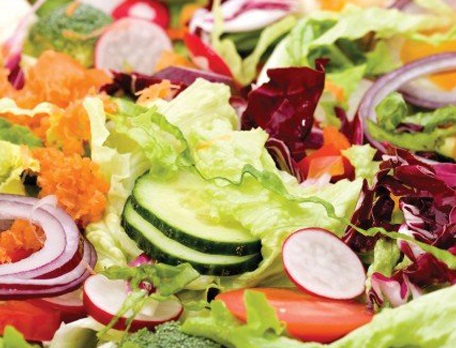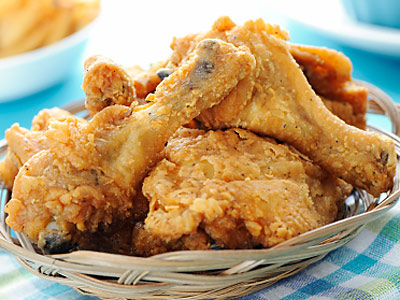Gastritis develops when the stomach lining is inflamed and irritated. The condition can result from bacterial and bile accumulation in the stomach. It can also occur after taking alcohol, acidic beverages, nonsteroidal anti-inflammatory drugs and cigarettes for a long time. People with this condition are often careless with their diet. It is advisable to pay attention to the diet, such as what to avoid with gastritis to prevent complications such as stomach cancer.
Foods to Avoid with Gastritis
1. Certain Beverages

Avoid carbonated drinks such as soda. Soda is carbonated, caffeinated and acidic, which makes it very harsh to the stomach lining. Also avoid alcoholic beverages, especially when experiencing gastritis flare-ups and taking alcohol in large amounts would contribute to gastritis development. Avoid coffee, both caffeinated and decaffeinated, caffeinated tea and cola as well because their gas and acid can worsen your condition.
2. Spicy Foods
 Avoiding spicy foods does not cure gastritis but helps in controlling the condition. Avoid spicy foods such as chili powder, peppers, hot sauce, and curry as they are naturally hash on stomach. With a healthy stomach, these spicy foods wouldn't cause much harm; however, with gastritis, your stomach is already weak and eating spicy foods would trigger gastritis symptoms and make the matter worse.
Avoiding spicy foods does not cure gastritis but helps in controlling the condition. Avoid spicy foods such as chili powder, peppers, hot sauce, and curry as they are naturally hash on stomach. With a healthy stomach, these spicy foods wouldn't cause much harm; however, with gastritis, your stomach is already weak and eating spicy foods would trigger gastritis symptoms and make the matter worse.
3. Raw, Coarse Vegetables
 Avoid raw and coarse vegetables if you have chronic gastritis episodes and eat food that is easily digestible to prevent irritation to your stomach lining. Many gastritis patients experience burning and pain after eating onions, garlic and sometimes tomatoes. People with acid reflux should also avoid these foods. Instead, eat cooked vegetables or vegetables chopped into small pieces and chew food properly before swallowing to help better digestion and prevent damage to the stomach lining.
Avoid raw and coarse vegetables if you have chronic gastritis episodes and eat food that is easily digestible to prevent irritation to your stomach lining. Many gastritis patients experience burning and pain after eating onions, garlic and sometimes tomatoes. People with acid reflux should also avoid these foods. Instead, eat cooked vegetables or vegetables chopped into small pieces and chew food properly before swallowing to help better digestion and prevent damage to the stomach lining.
4. Fatty Foods
 Fatty foods are part of the foods to avoid with gastritis, including breaded seafood, fried chicken, fried eggs and pies, onion rings, potato chips, and French fries. Avoid foods with trans-fatty acids because they irritate the stomach lining, increase blood pressure, and cause obesity and heart disease. Foods with trans-fatty acids include processed foods, margarine, and baked foods such as crackers, cakes, doughnuts, and cookies.
Fatty foods are part of the foods to avoid with gastritis, including breaded seafood, fried chicken, fried eggs and pies, onion rings, potato chips, and French fries. Avoid foods with trans-fatty acids because they irritate the stomach lining, increase blood pressure, and cause obesity and heart disease. Foods with trans-fatty acids include processed foods, margarine, and baked foods such as crackers, cakes, doughnuts, and cookies.
5. Dairies
 With gastritis, your stomach does not have the ability to digest fats and acids well. However, milk is rich in fat and more acidic than water. Therefore, limit your intake of milk and dairies to three servings or less in a day and take low-fat milk if possible. Some of the dairies to avoid include cheese, milk shakes, ice creams, sour creams and cottage cheese.
With gastritis, your stomach does not have the ability to digest fats and acids well. However, milk is rich in fat and more acidic than water. Therefore, limit your intake of milk and dairies to three servings or less in a day and take low-fat milk if possible. Some of the dairies to avoid include cheese, milk shakes, ice creams, sour creams and cottage cheese.
6. Other Foods to Avoid
- Avoid foods that cause gas such as cabbage, beans, broccoli, milk, peas and onions.
- Avoid rich and heavy gravies and creams such as cream based soups, and salad dressings.
- Avoid rich desserts such as ice cream, puddings,and cheesecake when experiencing symptoms of gastritis.
- Avoid vinegar and foods with vinegar such as citric acid drinks, soft drinks, mustard, caffeine and alcoholic drinks.
|
Type of Food |
Foods to Avoid |
|
Refined foods |
|
|
Fruits |
|
|
Fats and oils |
|
|
Meat |
|
|
Dairies |
|
|
Fish |
|
|
Beverages |
|
|
Sweet foods |
|
Plan Your Diet with Gastritis
Planning your diet starts with identifying the foods to avoid with gastritis. Here are some useful tips:
1. Eat Foods That Kill H. Pylori Bacteria
Broccoli contains sulphoraphane that kills H.pylori bacteria. Broccoli sprouts have 20-50 times more sulphoraphane than mature broccoli. If you happen to dislike the taste of broccoli, broccoli and sulphoraphane supplements can be purchased.
Garlic is antifungal and antimicrobial agent. H.pylori bacteria are sensitive to this agent. People with chronic heartburn may not tolerant garlic. They should start with small amount or take garlic capsules until they increase their tolerance.
2. Eat Probiotics
The recommended probiotics include Bifidobacterium and Lactobacillus bacterial species. These bacteria colonize the intestinal tract lining and hence heal the digestive system. Probiotics promote the gut’s capacity to digest and absorb nutrients. Eating probiotic foods and supplements and B vitamins is beneficial to individuals with vitamin B12 deficiency and gastritis. Probiotic foods include sauerkraut, organic yogurt, sourdough bread, and kefir.
In addition, foods rich in probiotics are most beneficial in reversing gut damages. The foods listed below heal the stomach and relieve gastritis symptoms include bloating, stomach pain, nausea, burning and heartburn.
- Cranberry juice
- Apple cider vinegar
- Beet and/or carrot juice
- Ginger
- Green tea
- Turmeric
- Pineapple or bromelain
- Oregano
Foods rich vitamin A are also beneficial because they promote tissue repair and mucous membranes functions. These foods include sweet potatoes, greens, apricots, asparagus, peaches, carrots, spinach and liver.
3. More Tips to Follow
Having learnt the foods to avoid with gastritis, here are more tips to plan your meals:
- Take at least 6 glasses of water per day to maintain a healthy fluid count.
- Include foods rich in vitamin B and calcium in your diet such as dark green vegetables, whole grains, sea vegetables, legumes and almonds.
- Replace red meats with skinned chicken, tofu, coldwater fish, beans, and skinned turkey
- Use healthy oils such as canola and olive oils.
- Take spinach or carrot juice occasionally because it soothes stomach inflammation and is easily digestible.
